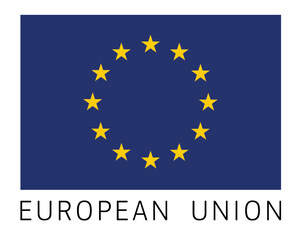WTO Rules in Favor of European Union against China's Export Restraints on Raw Materials
WASHINGTON, Jan. 30, 2012 /PRNewswire-USNewswire/ -- The Appellate Body of the World Trade Organization (WTO) confirmed today the findings made by a Panel in July 2011 that China's export restrictions on several industrial raw materials are in breach of WTO rules. The WTO found that China's export restrictions are not justified for reasons of environmental protection or conservation policy.
Today's final ruling was welcomed by Europe's trade chief. "This final ruling is a great success in our efforts to ensure fair access to the much needed raw materials for EU industry," said EU Trade Commissioner Karel De Gucht. "Today's decision has confirmed that China's export restrictions on these raw materials are incompatible with the WTO rules. It sends a clear signal that such measures cannot be used as a protectionist tool to boost domestic industry at the expense of foreign competition. China now must comply by removing these export restrictions swiftly and furthermore, I expect China to bring its overall export regime – including for rare earths - in line with WTO rules."
The Appellate Body confirmed the clear findings made by the Panel in its report last summer. The Panel found that the export duties and quotas imposed by China on various raw materials (various forms of: bauxite, coke, fluorspar, magnesium, manganese, silicon carbide, silicon metal, yellow phosphorus and zinc) are protectionist measures in breach of WTO rules and that China failed to justify them. The Appellate Body in particular upheld the finding that China has committed unconditionally in its Accession Protocol to the WTO not to levy export duties and that this commitment cannot be reduced by reverting to the general exceptions of the GATT.
The EU welcomes today's decision as a significant recognition of the interdependence of all WTO Members – whether developed or developing – when it comes to non-discriminatory access to raw material supplies as a fundamental principle underlying the global trading system.
The EU supports and encourages all countries to promote an environmentally friendly and sustainable production of raw materials. However, the EU strongly believes that export restrictions do not contribute to this aim. There are more effective environmental protection measures that do not discriminate against foreign industry.
Background
China applies export restrictions on key raw materials, some of which cannot be sourced outside China.
Export restrictions create serious disadvantages for foreign producers by artificially increasing China's export prices and driving up world prices. At the same time, such restrictions artificially lower China's domestic prices for the raw materials due to significant increases in domestic supply. This gives China's domestic downstream industry significant competitive advantages and puts pressure on foreign producers to move their operations and technologies to China.
As dialogue has not proven successful, the EU decided to have recourse to the WTO dispute settlement mechanism for an important set of raw materials. Restrictions on these materials have caused concerns for European industry such as the chemical, steel and non-ferrous metal industries, as well as their downstream clients, ranging from producers of beverage cans, CDs, electronics, automotives, ceramics, refrigerators, batteries and medicines and many more.
The export restrictions challenged include mainly export quotas (bauxite, coke, fluorspar, silicon carbide and zinc) and export duties (bauxite, coke, fluorspar, magnesium, manganese, silicon metal, yellow phosphorus and zinc) as well as some claims related to technical aspects of China's administration of export quotas and licenses and to a minimum export price.
The WTO dispute settlement case was initiated on June 23, 2009, by the EU and U.S., followed by Mexico. Consultations were held with China but no amicable solution was found. A WTO Panel was established on December 21, 2009. A first ruling by a WTO Panel was issued on July 5, 2011, upholding most of the EU's claims. China appealed certain aspects of this ruling on August 31, 2011. A hearing took place before the WTO's Appellate Body on November 7-9, 2011.
The Appellate Body upheld all main claims raised by the EU. For procedural reasons, the Appellate Body was not in a position to rule on some additional claims on technical aspects of China's administration of export quotas and licenses and to a minimum export price.
In terms of next steps, the EU (and the co-complainants) will request the adoption of the reports by the WTO Dispute Settlement Body within 30 days. China will then have to bring its measures in compliance with the rulings within a reasonable period of time.
For further information:
http://europa.eu/rapid/pressReleasesAction.do?reference=MEMO/12/58&format=HTML&aged=0&language=EN&guiLanguage=frMEMO/12/58
Report of the WTO Appellate Body:
http://www.wto.org/english/news_e/news12_e/394_395_398abr_e.htm
More information about WTO Dispute settlement
www.eurunion.org & www.twitter.com/EUintheUS
SOURCE Delegation of the European Union to the United States
WANT YOUR COMPANY'S NEWS FEATURED ON PRNEWSWIRE.COM?
Newsrooms &
Influencers
Digital Media
Outlets
Journalists
Opted In




Share this article